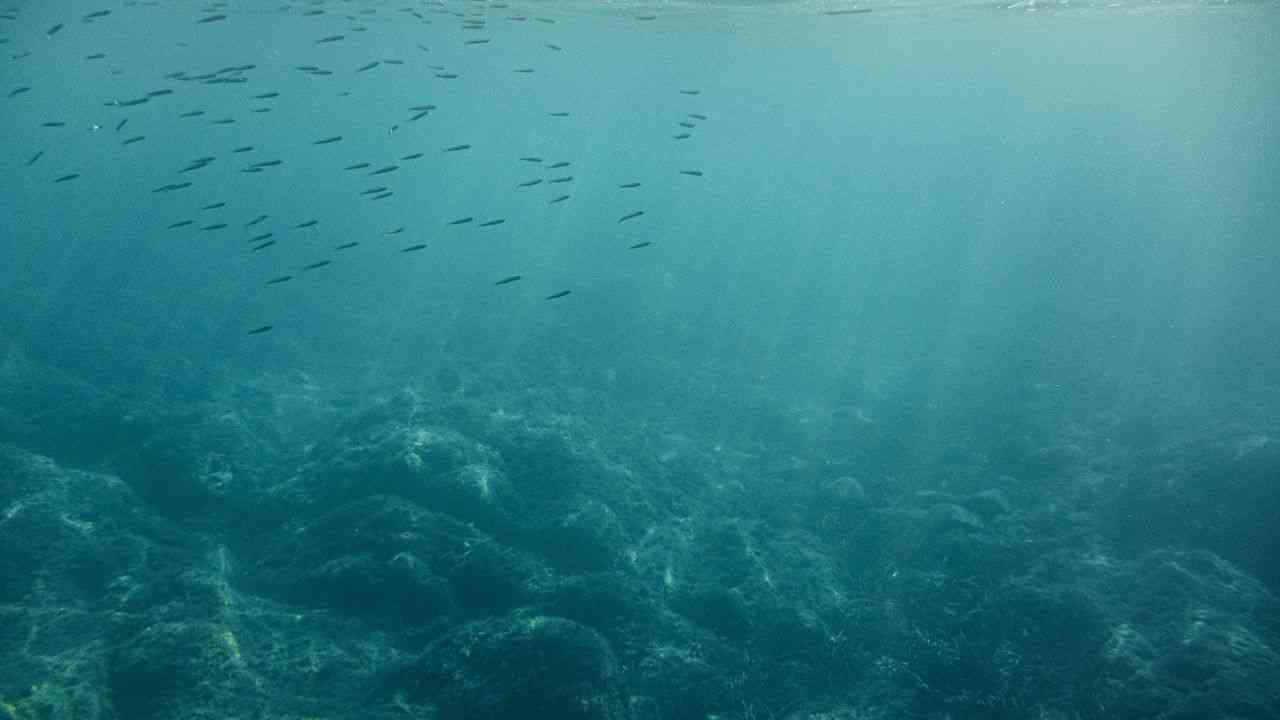Science
How Did Life Rebound on Earth? The Answer Lies Within the Rocks
23 February 2026

In 2022, 960 million foreign trips happened worldwide, about two-thirds of the pre-pandemic level. Add domestic trips in and estimates are that just under half the planet’s 8 billion inhabitants travel as tourists.
The effects of this increased mobility are multiple. On one hand, they increase environmental pollution including CO2 emissions, and trample over valuable relics of culture and nature. On the other hand, they leave significant profits with states, employ millions who work in the tourism and related industries, and broaden mental horizons for travelers taking the opportunity to get to know other communities and their customs.
Tourism’s slice of the global GDP exceeds 10%; in 2019, the record-breaking year to date, that amounted to $9.2 trillion. About 20% of the employed find work there. Rich countries and emerging economies alike depend on this sector to a substantial extent.
In 2018, France (nearly 90 million visits), Spain (83 million), and the US (80 million) competed to be world leader in the tourism economy. In the most-visited country rankings, other high placings are quite understandably occupied by Italy, Türkiye, Thailand, and Greece, while Poland’s 19th place with nearly 20 million visitors is a little surprising (those ranking lower include India and Croatia). Tourists leave the most cash in the US (over $200 billion a year), in Spain ($60 billion), and Thailand ($50 billion).
According to TripAdvisor’s ranking, based on tickets sold and online reviews, Italy leads the way. The top two sites are in Rome: the Colosseum and the Vatican Museums; the top ten closes with Venice’s Grand Canal. In third place stands the Statue of Liberty in New York City, while fourth and fifth belong to Paris, with the Louvre and the Eiffel Tower respectively, and sixth place belongs to the under-construction Barcelona church, the Sagrada Família. The ranking of most-popular cities looks rather different. According to Mastercard’s data for 2022, Bangkok can boast about the most visits (about 23 million), followed by Paris (19 million), London (19 million), Dubai (16 million), and Singapore (15 million).

What goals do these travels serve? Along with their primary purpose, which can differ between business, holiday, family, etc., the Polish saying “travels educate” seems accurate. Once we get to know new places, we usually learn lots: about the place we’re in, about people living there and their customs, about local cuisine and culture. We get the chance to make new friends, to talk to people we’d never meet in our environment. By the way, we also discover a lot anew: first about ourselves, in terms of our behavior in unusual situations, responses to unexpected events, consequences of decisions being taken. We then rediscover “our” places, upon returning from the expedition.
After their escapades, for example, to far Asia or Africa, most Poles – at least for some time – eat native delicacies. We’re enraptured again by verdant landscapes along the Vistula and Bug Rivers, and the smells of field herbs. And a quite obvious reflection arises: “How is it that we haven’t seen all of this until now?” We look at the world differently, sometimes also noticing changes in our behavior.
Getting to know culturally foreign places should serve in broadening one’s mental horizons, discovering perspectives we’d not known and helping rid oneself of prejudices towards others. But is it always so?
The development of mass tourism to distant, exotic places results in tourists appearing there completely unprepared. Normal means don’t help: brochures, guidebooks, explanations by pilots and travel agents. Those on holiday demand, for example, pork chops and potatoes for lunch in Arab countries, they loudly accost locals, and break all possible local taboos and prohibitions.
The Agoda agency, owned by a company dealing with online hotel reservations, asked its customers and guides about the most irritating behaviors they observed during a trip. Of the respondents, 46% said they’re most annoyed by tourists who were entirely insensitive to cultural differences. Admittedly, some of their blunders may be unintentional, resulting from ignorance, but too many simply expect customs around the world to adapt to where they’ve come from. These people are taken aback when it turns out otherwise.
Other annoying behavior included “sticking to the phone,” that is, staring at smartphone screens for hours during the trip, not paying attention to views out the window; alternatively, they’re on the watch only for spots for taking a selfie. Also badly evaluated were noisiness and imposing one’s language – tourists force-talking their way among locals can be a real nightmare. One bright example is teaching the natives to swear, for example, in Polish. Plenty of readers have probably found themselves in situations when, maybe in the African desert or an Asian jungle, a local souvenir vendor had no idea where Poland is but said the profanity starting with a k perfectly.
So what helps tourists to better situate themselves in local realities, treat people they meet there with respect, and get home from trips all the wiser for valuable experiences? Education seems crucial, at every possible level.
Many such initiatives are already taking hold – for example, in Paris, the magistrate’s office issued a special publication for hotel employees, travel agents, and taxi drivers, “Do You Speak Touriste?” aimed at sensitizing them to cultural differences in their contacts with visitors. It includes characteristics of tourists from 11 countries with descriptions of their typical interests, stereotypes to anticipate, ways of improving contact, and so forth. The publication’s aim was to gently introduce visitors into French reality, such as the advice to not “embarrass” Parisians with intrusive English (the French, not famed for fluency in this language, use it reluctantly), understanding set times when meals are served (e.g., late dinner), and more lax compliance with traffic rules than in Anglo-Saxon countries. On the other hand, the publication’s authors paid attention to foreigners’s needs, to help enable them in adapting more easily to life on the Seine – for example, Germans want to drink beer in a restaurant overlooking Notre-Dame, Chinese will want to visit…the shopping center, while for Brazilians good wi-fi access is key, and the Dutch are renowned for hunting for sightseeing bargains and for shopping as well… with discounts.
There were, of course, skeptics claiming the recommendations are nothing more than repeating harmful stereotypes and that each person should be treated in as individualized a way as possible. However, the initiatives are at the very least attempts to find a compromise on the issue of provider-recipient of tourist services. It happens often enough that the former, on the hunt for profits, end up inventing scams, for example, by touting pseudo-attractions that tourist too willingly visit.
What meets us there? The Uros Indians living like their ancestors on mobile islands in Lake Titicaca in Peru, it turns out, live in traditional houses on land, in the city of Puno. For the needs of tourists, though, each morning they dress in folk costumes then go by motorboat to those huts on the water, selling there (at no small profit) pseudo-local souvenirs. Women from the Mursi tribe in southern Ethiopia decorate their lower lips with clay discs…just for a few hours a day so exotica-thirsty Europeans and Americans can take pictures. They then get back to ordinary lives, watching TV and using mobile phones. Reindeer herders in Lapland, in their turn, tend their herds from helicopters rather than dogsledding. Out on Mongolia’s steppes, satellite aerials protrude from traditional yurts. Examples of stagings performed for tourists for their money multiply readily. With an equivalent in Poland: torchlit highlander sleigh rides in Podhale.
While the above examples are mostly obvious abuses by the tourism industry (who’d probably answer: given demand, we’re just providing supply), on the customers’ part, bizarre behavior certainly makes their presence felt. In the social-media age, with the young wanting to present themselves well, they invent fake-travel stories showing their photos on an exotic Bali beach – cut from another photo and Photoshopped. For authenticity in what’s Instagram-postable, they show “copies” of airline tickets, even beaming travel buddies, borrowed naturally from gazillions of photos out there on the internet.
What’s the way out of this tourist trap in which service providers and consumers both enjoy less of travel’s benefits than they could? As noted above, education needs implementation across the board. In Western societies, having managed to build ecological awareness and surpass divisions, it’s clearly possible to teach conscious, responsible traveling. Based on a decalogue of rules that are simple to explain.
One: prepare for the trip, which is to say get to know the place you’re heading and learn as much as possible about it. Two: take your time, and blend in to any extent that you can with the locals. Three: respect people you meet, don’t treat them as potential crooks – just because you’re from a richer part of the world doesn’t mean you’re entitled. Four: respect local culture whatever your views may be about it – after all, it’s not just your beliefs that are right beliefs. Five: learn even a few words in the local language, this invariably facilitates communication greatly. Six: take care of places you’re in, don’t leave any rubbish. Seven: don’t fall for questionable attractions or anywhere you suspect of being operated to exploit people or animals. Eight: get to smaller attractions, don’t just focus on the biggest ones – this way, you’ll get to know unique places. Nine: support local producers, for both food and souvenirs. Ten: keep photography sensible, don’t disturb religious ceremonies, and don’t butt in on human weaknesses.
Along with these points, many will probably want to add something else, for example, about reasonable bargaining (forcing prices to the minimum can cost the poor their living wages), not feeding wild animals, traveling by public transport, avoiding peak season, and more. It’s not always possible to meet all conditions, and the more organized and planned the trip (traveling in a group), the less influence you have on decisions. While you won’t be changing the bus’s route, though, your influence shows in how you relate to local people. It’s easier to travel consciously and responsibly on your own, sure, but even when you’re in a big group, there’s much you can do.
Traveling isn’t for everyone. Plenty among us won’t be able to drop prejudices, and they’ll remain closed in their views. Too bad. As Tiziano Terzani, the famous Italian reporter and globetrotter, wrote: “Traveling makes no sense. Because if someone has nothing inside, they won’t find it outside either. It is pointless to look for something in the world that cannot be found in oneself.”

Science
22 February 2026

Humanism
22 February 2026

Zmień tryb na ciemny